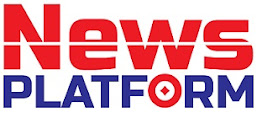 |
| Tinubu. |
President Bola Tinubu has approved the introduction of a 15 per cent ad valorem import duty on petrol and diesel imported into Nigeria—a policy aimed at safeguarding local refineries and promoting stability in the downstream petroleum sector.
In a directive dated October 21, 2025—and made public on Wednesday—Tinubu instructed the Federal Inland Revenue Service (FIRS) and the Nigerian Midstream and Downstream Petroleum Regulatory Authority (NMDPRA) to begin immediate enforcement of the tariff. The government explained that the decision is part of a new “market-responsive import tariff framework.”
The letter, signed by the president’s private secretary, Damilotun Aderemi, confirmed that Tinubu had approved a proposal submitted by FIRS Chairman Zacch Adedeji. The proposal recommended a 15 per cent tariff on the cost, insurance, and freight (CIF) value of imported petrol and diesel to ensure fair market reflection and stimulate local production.
Adedeji stated in his memo that the policy was created to support Nigeria’s “Renewed Hope Agenda,” which focuses on achieving energy security and economic resilience.
“The core objective of this initiative is to operationalise crude transactions in local currency, strengthen local refining capacity, and ensure a stable, affordable supply of petroleum products across Nigeria,” Adedeji explained.
The FIRS chairman cautioned that the price difference between domestically refined fuel and import parity benchmarks has contributed to ongoing market instability.
“While domestic refining of petrol has begun to increase and diesel sufficiency has been achieved, price instability persists, partly due to the misalignment between local refiners and marketers,” he wrote.
Adedeji highlighted that import parity pricing often falls below cost recovery levels for domestic refineries, especially when affected by fluctuations in foreign exchange and freight — a situation that endangers the sustainability of emerging local producers.
He added that the government now carries a “twofold” obligation to protect consumers and domestic producers from unfair pricing practices and collusion, while ensuring a level playing field for refiners to recover costs and attract investments.”
According to him, the new tariff framework will stop duty-free fuel imports from weakening domestic refineries and encourage a balanced, competitive downstream petroleum market.
Projections contained in the presidential approval document indicate that the 15 per cent import duty could increase the landing cost of petrol by roughly ₦99.72 per litre.
“At current CIF levels, this represents an increment of approximately 99.72 per litre, which nudges imported landed costs toward local cost recovery without choking supply or inflating consumer prices beyond sustainable thresholds. Even with this adjustment, estimated Lagos pump prices would remain in the range of N964.72 per litre ($0.62), still significantly below regional averages such as Senegal ($1.76 per litre), Cote d’Ivoire ($1.52 per litre), and Ghana ($1.37 per litre),” the letter stated.
The policy aligns with Nigeria’s broader strategy to reduce dependence on imported petroleum products and expand local refining capacity.
The 650,000-barrels-per-day Dangote Refinery in Lagos has already commenced production of diesel and aviation fuel, while modular refineries in Edo, Rivers, and Imo states are refining petrol on a smaller scale.
Despite these developments, imported petrol continues to account for about 67 per cent of Nigeria’s total fuel consumption.






![BREAKING: [PHOTOS] Anthony Joshua In Road Crash, Two Die.](https://blogger.googleusercontent.com/img/b/R29vZ2xl/AVvXsEigLWDKEmEz4fqfp0oOQURG2-DNdM6vQ534yGbiLrdzgvWIVV5X8nnHxQkb5pnGR8EbcqEWtJX4JTN7EMInCJfD15F1ZlSpxdSfb9VS-gJa1ADfD5tLZ71KeV7nZztwDPlgIWi4bg_t3OkytV71dgheBjpeMLRjGhOsACTplUWnsr5r3d2hFhAuyQSf-YY/w100/WhatsApp-Image-2025-12-29-at-12.50.55-1-768x595.webp)




0 Comments
DISCLAIMER
The views and opinions expressed on this platform as comments were freely made by each person under his or her own volition or responsibility and were neither suggested nor dictated by the owners of News PLATFORM or any of their contracted staff. So we take no liability whatsoever for such comments.
Please take note!